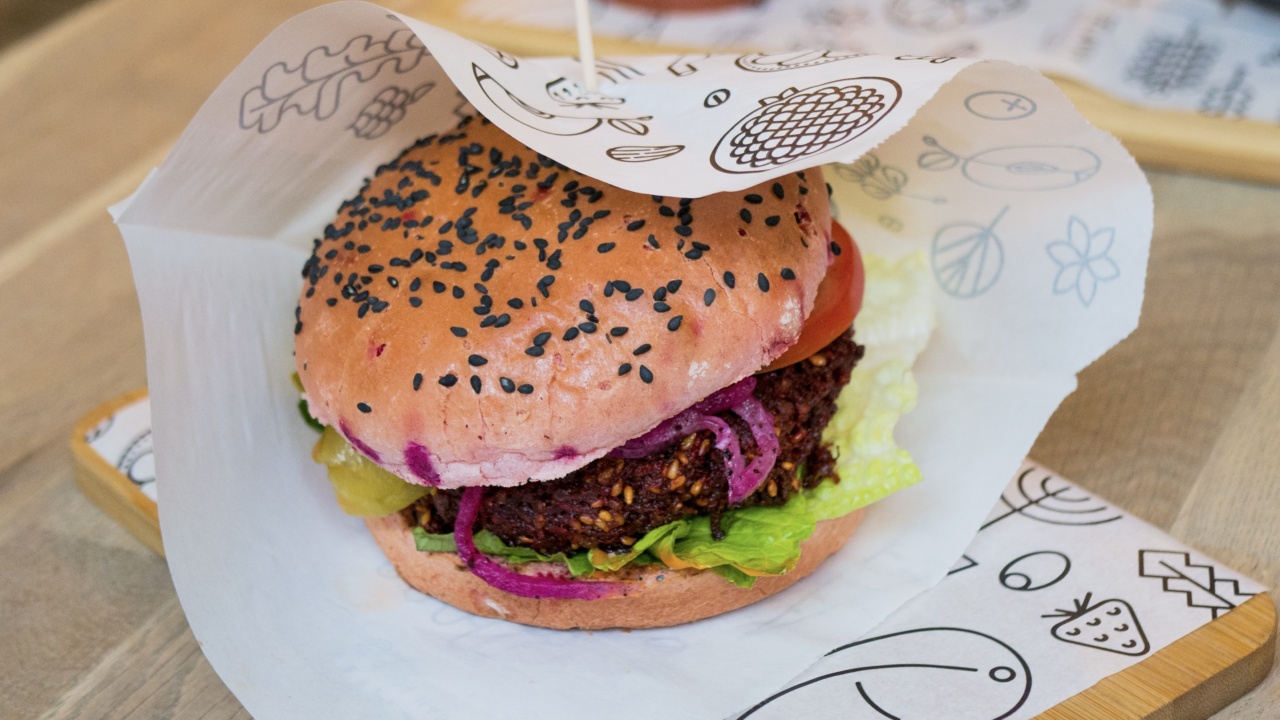Vegetarianism is a lifestyle choice that advocates for the consumption of plant-based foods and the exclusion of animal-based foods such as meat, poultry, and fish.
The decision to adopt a vegetarian diet may be based on various reasons including personal beliefs, health, and environmental concerns. However, over the years, several myths and misconceptions have emerged regarding the vegetarian lifestyle, the most common being that vegetarians are weaker than meat-eaters.
In this article, we will explore this myth and other common myths about vegetarianism.
Myth 1: Vegetarians Are Weaker Than Meat-Eaters
The idea that vegetarians are weaker than meat-eaters is one of the most common misconceptions about vegetarianism.
Advocates of this myth claim that without meat, vegetarians become protein deficient and lack the necessary nutrients for building strong muscles. However, studies have consistently shown that vegetarians have similar muscle strength and endurance as meat-eaters.
In fact, many professional athletes, including football star Tom Brady and tennis player Venus Williams, have adopted vegetarian diets and have credited their plant-based diets for improving their overall performance.
The reality is that there are plenty of vegetarian sources of protein that can help build and maintain muscle mass. These include beans, lentils, tofu, tempeh, seitan, and various nuts and seeds.
Myth 2: Vegetarian Diets Are Boring and Restrictive
Another common myth about vegetarianism is that a vegetarian diet is bland, boring, and limited in variety. However, this couldn’t be further from the truth.
Vegetarian diets can include a wide variety of flavors, textures, and cuisines from around the world.
There are countless vegetarian recipes available online and in cookbooks that prove that plant-based diets can be creative and exciting.
From hearty stews and soups to vibrant salads and vegetable-based dishes, there is something for everyone in a vegetarian diet.
Myth 3: Vegetarians Don’t Get Enough Nutrients
Some people believe that vegetarians are at risk of nutritional deficiencies because they exclude meat from their diets.
However, research has shown that as long as vegetarians plan their diets carefully and consume a wide variety of plant-based foods, they can meet their nutritional needs.
Vegetarians can obtain essential nutrients, including protein, iron, calcium, and vitamin B12, from plant-based sources.
For example, leafy green vegetables such as spinach and kale are rich in iron, while fortified cereals and soy products can provide vitamin B12.
Myth 4: Vegetarian Diets Are Expensive
Many people assume that vegetarian diets are more expensive than meat-based diets because of the cost of fresh produce and meat alternative products. However, this is not necessarily the case.
In fact, vegetarian diets can be more affordable than meat-based diets because plant-based foods are often cheaper than meat.
Moreover, vegetarian diets can be more sustainable in the long run because they rely less on expensive and environmentally damaging meat production.
By replacing meat with plant-based proteins, vegetarians can reduce their environmental impact while still maintaining a healthy diet.
Myth 5: Vegetarians Are Unable to Build Muscle Mass
Similar to the first myth, some people believe that vegetarians are unable to build muscle mass because of their exclusion of meat from their diets. However, this is untrue.
Vegetarians can consume a sufficient amount of protein and other nutrients to build and maintain muscle mass.
In fact, research has suggested that plant-based proteins may be just as effective in promoting muscle growth as animal-based proteins.
Some vegetarian protein sources, such as soy protein, contain the same essential amino acids found in meat and can be used to build muscle mass and strength.
Myth 6: Vegetarians Cannot Get Enough Protein
Vegetarians can get enough protein from a variety of plant-based sources. While meat is a rich source of protein, it is not the only source available. Vegetarians can consume protein from beans, lentils, tofu, tempeh, and other plant-based sources.
Moreover, a vegetarian diet can provide all the essential amino acids needed for protein synthesis.
By combining different plant-based protein sources, vegetarians can create a complete protein that is just as effective as animal-based protein for building and maintaining muscle mass.
Myth 7: Vegetarians Face Social Isolation and Stigmatization
Some people assume that vegetarians face social isolation and stigmatization because of their dietary choices. However, this is not necessarily true.
In fact, vegetarianism is becoming more mainstream, and many restaurants and food establishments offer vegetarian options on their menus.
Furthermore, vegetarianism is often motivated by ethical and environmental concerns, and many people respect and support these values.
Vegetarians may even find that their dietary choices spark interesting conversations and inspire others to consider plant-based diets as well.
Myth 8: Vegetarians Are At a Higher Risk of Iron Deficiency
Some people believe that vegetarians are at a higher risk of iron deficiency because they exclude meat from their diets. However, this is not necessarily true.
While it is true that meat is a rich source of iron, there are plenty of plant-based sources of iron that vegetarians can consume.
Iron-rich plant-based foods include spinach, kale, lentils, chickpeas, and fortified cereals.
Vegetarians can also increase their absorption of iron by consuming vitamin C-rich foods such as citrus fruits and bell peppers alongside iron-containing foods.
Myth 9: Vegetarians Are At a Higher Risk of Osteoporosis
Some people believe that vegetarians are at a higher risk of osteoporosis because they exclude dairy products from their diets. However, research has shown that vegetarians can obtain adequate amounts of calcium from plant-based sources.
Calcium-rich plant-based foods include fortified plant milks, tofu, leafy green vegetables, and almonds. In addition, weight-bearing exercise can help improve bone health and reduce the risk of osteoporosis in both vegetarians and non-vegetarians.
Myth 10: Vegetarians Cannot Meet Their Nutritional Needs During Pregnancy
Some people believe that pregnant women who follow a vegetarian diet cannot meet their nutritional needs. However, this is not necessarily true. Pregnant vegetarians can meet their nutritional needs by consuming a wide variety of plant-based foods.
Vegetarian sources of protein, iron, calcium, and other essential nutrients can provide pregnant women and their fetuses with the necessary nutrients for a healthy pregnancy.
Furthermore, supplements such as prenatal vitamins can also ensure that pregnant vegetarians receive enough vitamins and minerals.
Conclusion
Vegetarianism is a valid and healthy lifestyle choice that has been the subject of many myths and misconceptions.
The belief that vegetarians are weaker than meat-eaters is one of the most common myths that has been debunked by numerous studies and examples of professional athletes who have excelled on plant-based diets.
Other common myths about vegetarianism, including the ideas that vegetarian diets are boring, nutritionally deficient, and expensive, have also been challenged by research and practical examples.
By adopting a carefully planned vegetarian diet, individuals can enjoy a healthy, varied, and affordable way of life that aligns with their values and beliefs.






























